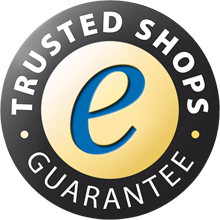
In 2023, European Union will be facing big changes. One of those is a new legislation proposed by European Commission back in 2020, which would change the flow of competition on the digital market. DMA or Digital Market Act was signed in late 2022 and is aimed to create fairer competition and containment of the possible domination on the market with tech giants.
This regulation is especially interesting when it comes to Apple Inc.
The company has been facing criticisms all the time through their existence. It was usually related to the gadgets itself, operating systems, as well as the criticism from app developers.
The last one, is the crucial when it comes to the discussion about DMA. App developers are dissatisfied with the fact that Apple controls everything when it comes to downloading apps and third-party softwares’. In addition, the company has set 30% fee for them, which gradually decreases and threatens revenues.
In terms of the implementation of DMA, it was the biggest change of the governing laws’ in more than 2 decades, and it creates a huge threat for Apple’s control of its closed and secure operating system (IOS).
The DMA not only requires opening up the possibility to download app from different external sources, but also to allow the developers to install third-party payment systems. Nowadays, if the app provides its customers with so-called IAP (in-app purchase), Apple takes 15-30% as the commission, and as it was said by chief execute of the company Tim Cook, such system does not suit in terms of DMA, however, coming up with a new idea would create a mess.
It is more interesting to consider what will Apple do, what they will have to create and/or change to fit the regulation.
The company is widely known as lawyers seekers, so it is expected that they will not only challenge DMA by trying to interpret what seeping laws entails, but also through direct confrontation between the European Commission and Apple over the implementation of the rules.
What else can Apple do?
Firstly, apps that provide banking or pick-up services, that currently does now pay any fees can be forced to do this, as well as the c0mpany can cut their inside fees to become even attractive to the developers.
This move would lead big companies that left Apple Store, for instance, Spotify, to come back, not offering their current way of paying for the subscription via the website. As this can result to high traffic without any significant impact on the revenue.
This is going to be spectacular to see how companies will be changing aiming to fit in the new legislations, as those are considered to be huge changes not only for European Union as a whole, but also the companies that would like to compete even with such tech giants as Apple.
To read more about DMA: https://www.euronews.com/next/2022/11/02/eus-digital-markets-act-comes-into-force-what-is-it-and-what-does-it-mean-for-big-tech


